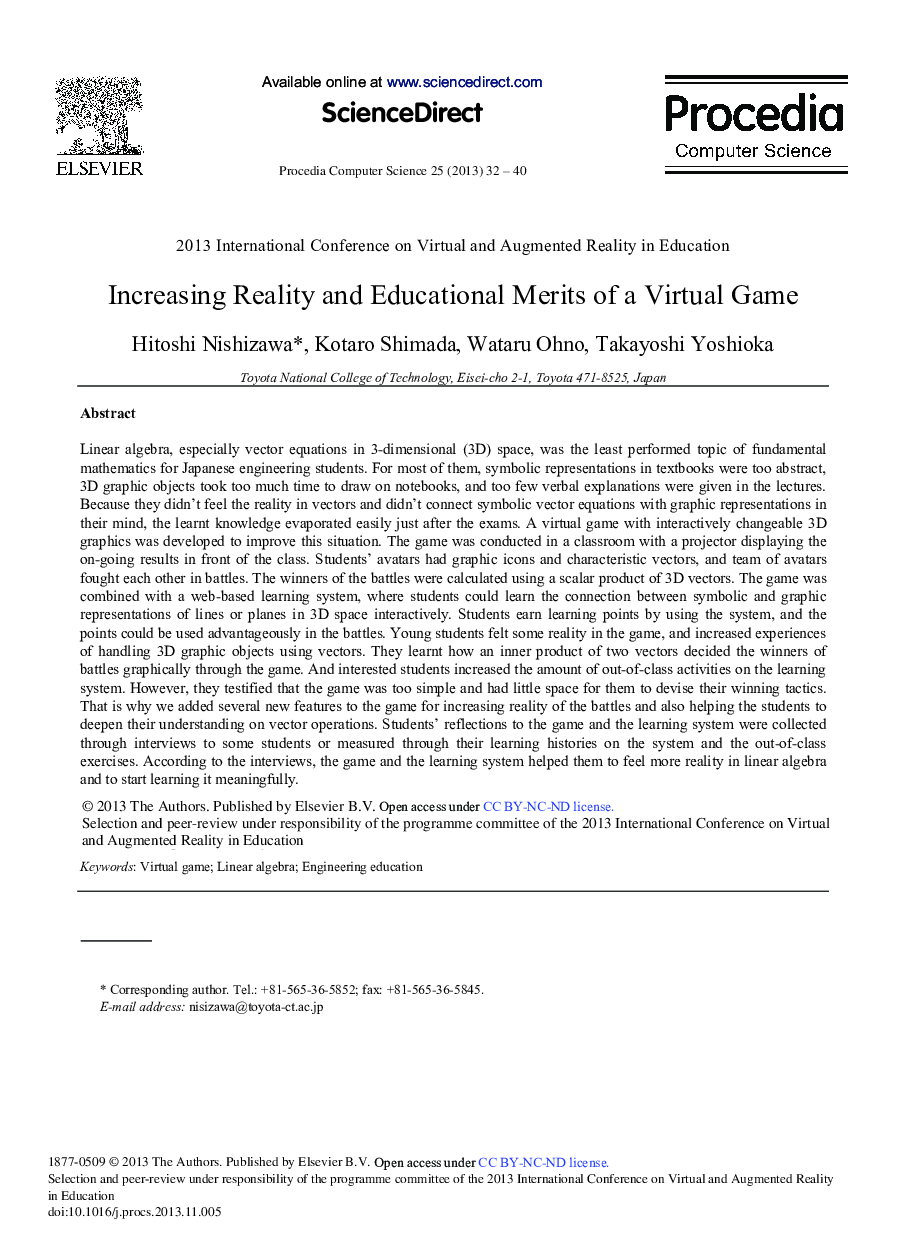| Article ID | Journal | Published Year | Pages | File Type |
|---|---|---|---|---|
| 490301 | Procedia Computer Science | 2013 | 9 Pages |
Linear algebra, especially vector equations in 3-dimensional (3D) space, was the least performed topic of fundamental mathematics for Japanese engineering students. For most of them, symbolic representations in textbooks were too abstract, 3D graphic objects took too much time to draw on notebooks, and too few verbal explanations were given in the lectures. Because they didn’t feel the reality in vectors and didn’t connect symbolic vector equations with graphic representations in their mind, the learnt knowledge evaporated easily just after the exams. A virtual game with interactively changeable 3D graphics was developed to improve this situation. The game was conducted in a classroom with a projector displaying the on-going results in front of the class. Students’ avatars had graphic icons and characteristic vectors, and team of avatars fought each other in battles. The winners of the battles were calculated using a scalar product of 3D vectors. The game was combined with a web-based learning system, where students could learn the connection between symbolic and graphic representations of lines or planes in 3D space interactively. Students earn learning points by using the system, and the points could be used advantageously in the battles. Young students felt some reality in the game, and increased experiences of handling 3D graphic objects using vectors. They learnt how an inner product of two vectors decided the winners of battles graphically through the game. And interested students increased the amount of out-of-class activities on the learning system. However, they testified that the game was too simple and had little space for them to devise their winning tactics. That is why we added several new features to the game for increasing reality of the battles and also helping the students to deepen their understanding on vector operations. Students’ reflections to the game and the learning system were collected through interviews to some students or measured through their learning histories on the system and the out-of-class exercises. According to the interviews, the game and the learning system helped them to feel more reality in linear algebra and to start learning it meaningfully.
